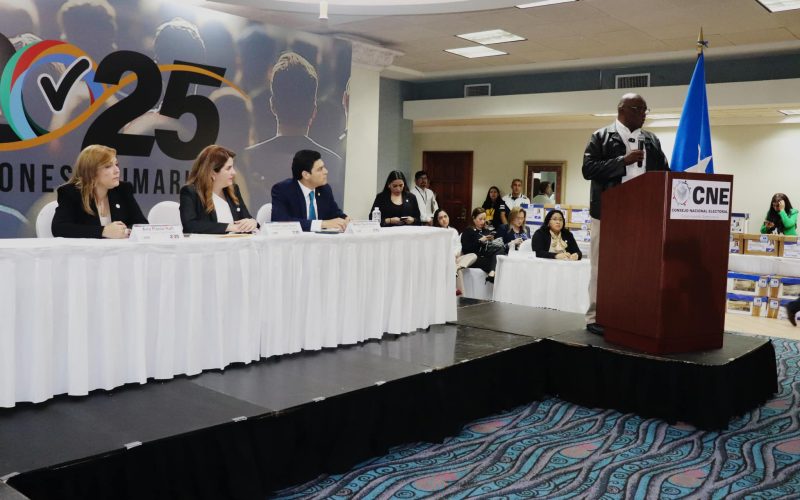With less than two months to go before the general elections scheduled for November 2025, electoral process specialists are warning of possible irregularities that could affect the transparency and outcome of the elections. Attention is focused on the National Electoral Council (CNE), whose operation and control of key systems is being questioned.
Management of systems and potential influence
Based on experts’ insights, some figures associated with the governing LIBRE party are said to have power over the TREP (Transmission of Preliminary Election Results), which is the system for reporting early voting outcomes. This condition, specialists suggest, might enable the alteration of outcomes or cause delays in their release, potentially benefiting the ruling party’s nominee, Rixi Moncada.
Control over the TREP is not the only concern. Sources consulted indicate that the network of influence could involve traditional political parties, electoral technology companies, and economic groups with the capacity to intervene in the logistics of the elections, which would complicate the guarantee of an impartial process. In addition, the exclusion of emerging parties and the prosecution of dissident candidates are identified as strategies that limit real competition and affect citizen participation.
Historical examples and logistical difficulties
The background to the March 2025 primary elections reflects difficulties that generate mistrust. The distribution of electoral material was the responsibility of officials linked to LIBRE, which caused delays in the delivery of ballot boxes and failures in transport logistics. Experts point out that these situations could be repeated in November, increasing the perception of irregularities and reinforcing narratives of fraud.
This message warns about the potential use of fraud narratives as a political weapon to undermine unfavorable outcomes, incite public demonstrations, and create social unrest ahead of the elections. Experts suggest that a mix of limited institutional authority and divisive rhetoric heightens the likelihood of a democratic crisis.
Consequences for administration and civic engagement
The present situation presents difficulties for leadership and confidence in organizations. The storyline of election tampering impacts how the public views the legitimacy of the process and can sway the nation’s political stability. Specialists advise civic monitoring and the adoption of electoral changes that ensure free and open elections, with oversight systems that maintain the integrity of the tallying and allocation of voting materials.
The situation also highlights the need to strengthen democratic institutions and ensure that political actors compete on equal terms. Active citizen participation and monitoring of procedures by independent bodies are key factors in preventing irregularities that compromise the credibility of the electoral system.
Honduras is currently facing a significant crossroads: the forthcoming elections have the potential to determine not just the near-term political path, but also how institutional stability is perceived and the extent of society’s trust in its democratic systems. Vigilance regarding the processes and openness in the CNE’s operations will be vital to ensure that worries about possible fraud do not transform into a source of instability.




